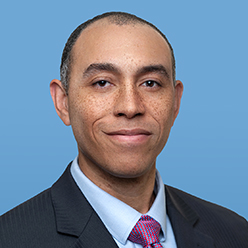On September 24, AFPC’s Defense Technology program hosted AFPC hosted Mr. David Trachtenberg on Capitol Hill for a lunch briefing on “Protecting the War-fighter in an Austere Budget Environment.”
Trachtenberg, an independent consultant in national security affairs, is the President/Chief Executive Officer of Shortwaver Consulting. With experience in both the private and public sectors, Trachtenberg has held the positions of Principal Deputy Assistant Secretary of Defense for International Security Policy, Acting Deputy Assistant Secretary of Defense for Forces Policy, and was a senior professional staff member on the House Armed Services Committee (HASC).
In his remarks, Trachtenberg emphasized the importance of defense technology and continued funding in the protection of our warfighters, and more broadly, to U.S. defense strategy. Trachtenberg highlighted the non-traditional, asymmetric threats that our warfighters are increasingly likely to confront in the future, and proposed policy options for mitigating each of these threats.
He specifically focused on five challenges: terrorism, cyber warfare, WMD and ballistic missile proliferation, electromagnetic pulse (EMP), and increased complexity and “urbanization” of the battlefield. Each, Trachtenberg noted, will have a significant effect on the ability of our warfighters to execute their missions successfully.
To address these threats, Trachtenberg noted, Congress needs to approve additional fiscal resources, even in a time of budget austerity. Because defense is discretionary funding, spending more on defense is simply a matter of being willing to spend less on something else. Strategy should inform budgets, not the other way around. In a global environment of increasingly sinister threats, the United States cannot simply walk away from its commitments.
